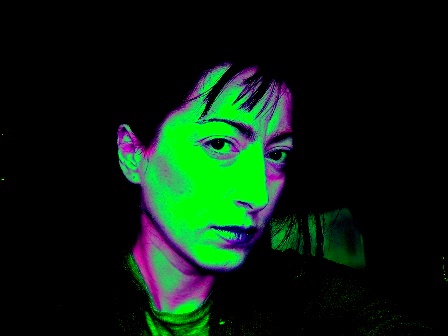
YANA DJIN
|

Moscow News
August, 2000
|
Things are going pretty well in the United States. The consensus here is that America is experiencing the “Era of Prosperity.” Not only is the federal budget balanced, but there is also a considerable surplus. Unemployment is at its lowest in decades, and consumers are spending money aggressively. Ironically, though, thanks to this prosperity, the two main presidential candidates, George W. Bush and Al Gore, are having a hard time formulating their agenda for this country. At last week’s Republican Convention, Bush promised to return to the Americans the sense of past glory, unity and optimism which marked the years of the Reagan presidency. Although thousands of people who were listening to their candidate’s speech cheered, this statement seemed rather confusing. What Americans remember about the 1980s is budget deficit, rising real-estate and mortgage rates, and recession. Reagan is indeed identified with all-American patriotism, but people here are just as patriotic as ever, and they are also financially secure, as a result of which they view the future quite optimistically. What Bush and Gore really want to tell the American people is that they will keep the wealth going but reintroduce dignity and character to the White House. In fact, after one listens to both candidates, one is puzzled by their virtually agreeing on every issue. One of the most noticeable exceptions is abortion, but I get the feeling that soon enough they will find a compromise, however implausible. To succeed in politics it is necessary to rise above one’s principles and beliefs, and both of these men want just that – to succeed. This election marks a clean break from previous presidential elections. The two opposing parties have moved so much to the center that they have actually blended. Although Clinton could be called the master-mind of this fuzzy politics, when he ran for presidency against George Bush Sr., the two men still clearly differed on major issues. No wonder the actor Warren Beatty, who toyed with the idea of running for office, said earlier this year that what America needs is not a third party, but a second party. Incidentally, the third party candidate, Ralph Nader, a long-time activist and corporate watchdog with no chance of being seriously taken into account during this political season, complained that the biggest obstacle he faces is the united front that the two major parties form. So Bush is actually inaccurate, perhaps even nonsensical, when he promises to unite the American people. They are so united that the differences between the Democrats and the Republicans are blurred, and if you are a logical person and a conscientious voter, you might as well save your time and energy and flip the coin on election day. The slight differences between the candidates are not worth serious consideration. That makes things easy enough for the voter. But what are the candidates to do? They are faced with no easy task. It takes less effort for politicians to get noticed when the country and its people are aching for change and improvement. America, however, according to the voters, is doing just fine. So, neither Gore nor Bush speak in terms of changes. If you listen closely, neither of them is introducing a fresh political program or saying anything new. In fact, it is not the content of the message but its delivery that will determine the winner in November. It only seems that the two candidates are running against each other. In reality both men are running for the same office on almost identical platforms – absence of new ideas. But this absence, once again, is caused not by the inability of the candidates to concoct a plausible and appealing political platform like Clinton’s “Bridge into the 21 st century.” The cause of this absence is its irrelevance. So each candidate, in order to secure the votes, must overpower his opponent with charisma. Bush’s party put on a week-long show during the convention, with multi-racial speakers to demonstrate their all-inclusiveness and a “softer touch,” but not one speaker came up with a fresh view. The most innovative idea of the Republican Convention was the promise to reintroduce character into the White House. Laura Bush, the candidate’s wife, proclaimed during her much-awaited speech that her number one priority was that children respect the president of the United States. She was, of course, alluding to the Clinton-Lewinsky scandal. People threw confetti and balloons into the air after her speech, but no one said that it was possible to respect a president who, at long last, balanced the budget and drove unemployment to its lowest level. It is predicted that next week’s Democratic Convention will be just as high on fanfare and noise and low on content and issues. Gore, too, is expected to stress character and family values and to widen the rift between himself and his soon-to-be former-boss, Bill Clinton. Come to think of it, these elections are quite extraordinary because Bush and Gore seem to be running not against each other but against Bill Clinton. Neither is really criticizing Clinton’s politics because it has brought prosperity, but both are stomping on his character. Bush tries to project the boy-next-door image which, taking into account his not very sophisticated nature, comes easily to him, while Gore’s campaign managers advise him to seem less dull than he looks and spray the papers with the photos of Al and Tipper reveling in familial bliss. To make his stand on Clinton’s character clearer, Gore chose Joseph Lieberman as his running mate, a Democrat who openly condemned Clinton for his “immoral” conduct and whose views are so center-oriented he could easily chameleon into a Republican. The real challenge for the candidates will most likely be upcoming debates, when their political prowess will be tested: After all, they will have to make it seem like they are disagreeing on things on which they actually agree. |